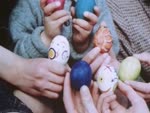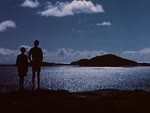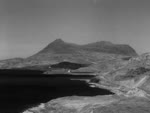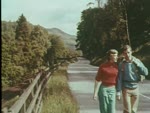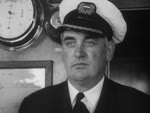MAJORCAN MEDLEY: A Study of the Peasant Life of the Island
Full length video
Please read Understanding catalogue records for help interpreting this information and Using footage for more information about accessing this film.
Title: MAJORCAN MEDLEY: A Study of the Peasant Life of the Island
Reference number: 0133
Date: 1953c
Director: filmed by Nettie McGavin
Sound: silent
Original format: 16mm
Colour: col
Fiction: non-fiction
Running time: 16.20 mins
Description:
Scenes of local life on Majorca including shots of local fishing and the Fiesta in Valldemosa. The film also looks at the Moorish influence on the island's buildings.
Highly commended, Scottish Amateur Film Festival of 1953. Winner of the Mary DohertyTrophy - for a teaching / educational film.
Paper records held relating to this film at the National Library of Scotland Moving Image Archive 2/3/41.
One of a number of films made by Nat and Nettie McGavin (of McGavin’s Tea) during company business trips to tea producing countries.
Credits: Scottish Association of Amateur Cinematographers 1953 Festival - Highly Commended Film.
Shotlist:
[BW] opening credits and [COL] (0.28) map of Spanish Coast including Barcelona, and Balearic Islands, including Pollensa, Alcudia, Palma (0.39) The Balearic Islands have belonged to Spain since 1229 when King Jaime freed them from the Moors who had been in possession for 800 years. Majorca, the largest of the group is self-supporting. The natives are simple peasant folk, mostly fishermen and farmers (1.05) pan of the island. gvs streets, Pollensa. Includes horse and cart on road, boys manually pumping water into baskets at the side of road (1.53) Street Markets gvs same, haberdashery and fabrics for sale, fresh fruits and vegetables are weighed out using hand held scales, gvs fishing boats in harbour (3.25) An Octopus, used as bait by local fishermen fishing with octopus as bait, gvs fish market, laying out and folding nets in order to mend them (7.16) The Romans took possession of the island in 125B.C. Their capital was Alcudia, round which they built a high wall with two large gates gvs Alcudia (8.18) Roman bridge with curious opening in centre pillar for overflow of river gvs same (8.35) Open-air Theatre built by Romans with large stone seats rising in tiers gvs same (8.53) The Moors from North Africa succeeded the Romans from 434 - 1229 A.D. The effects of their civilising influence are seen today in customs and architecture. An old farm with Moorish style of Architecture. gvs Moorish influence on farm building (9.17) Drawing water from a well to irrigate the fields Example of same at an old farm. Working the land and general rural activities, including a woman manually digging the soil, and ploughing using a donkey to draw the plough (11.31) Prickly-pear gvs same, cactus (11.47) Pomegranates gvs same, further shots of ploughing (12.32) Along the coast and up to the mountain village of Valldemosa which is celebrating a 'Fiesta' gvs coastal scenes, gvs Valldemossa (13.45) The holiday begins with High Mass in the old village church gvs crowds of people around the church, balloons, street musicians and dancing (16.37) The 'Fiesta' is ended - the band goes home, shot of musicians walking away from camera (16.48) The End (16.54)

